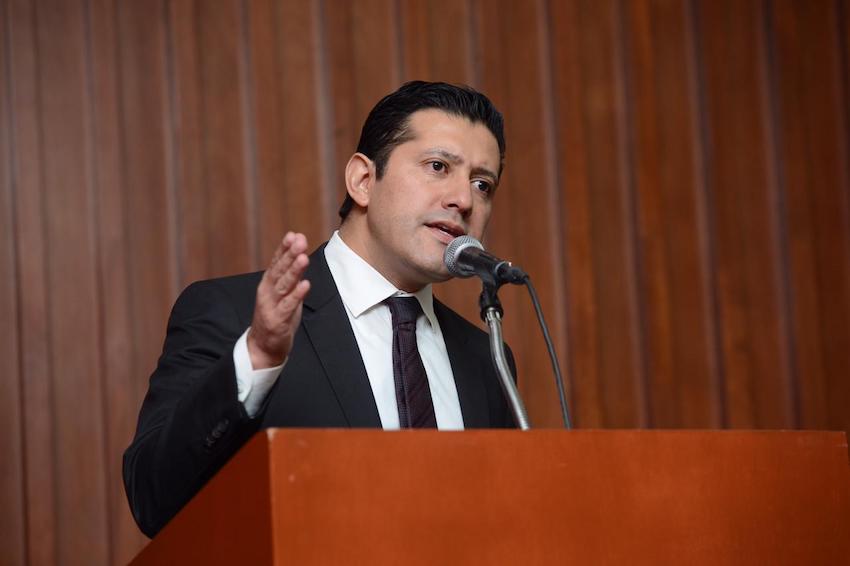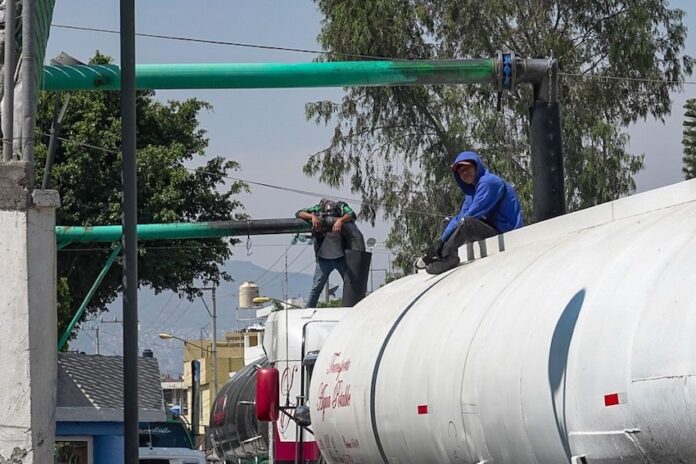Water has effectively been stolen on a large scale in Mexico by concession-holders, according to a senior official with the National Water Commission (Conagua).
In an interview with the newspaper El Universal, Conagua’s deputy director for water management, Mauricio Rodríguez Alonso, said that the federal agency has detected more than 52,000 irregularities related to water concessions, including cases in which water was being exploited by people whose concessions were no longer valid.

In other cases, Conagua has found that water was being used for purposes unrelated to the applicable concession, Rodríguez explained.
The review of water use permits is a key focus of the National Water Plan that was presented by the federal government last November.
Rodríguez told El Universal that Conagua has so far reviewed 90% of 536,000 water concessions.
Although various parts of Mexico have had a very productive rainy season that has replenished previously parched reservoirs, the long-term availability of water remains an ongoing national concern.
Efforts to save water and stop the illegal exploitation of the essential resource are much-needed.
Who holds water concessions in Mexico?
Rodríguez said that water use permits have been issued to farmers, factories, hydroelectric power plants and municipal governments.
Around two-thirds of concessions were issued for agricultural purposes, he said.
Rodríguez said that each concession stipulates the amount of water the holder is permitted to use and is valid for varying periods of time ranging from 10 to 30 years.
The expiration and misuse of concessions
Rodríguez said that during the current federal administration, Conagua “realized” that many water concessions “lack validity.”
He didn’t specify how many expired concessions were being used to access water, but described the number as “large.”

Farmers and municipal governments are among those who have failed to renew their concessions on time, the official said.
Rodríguez said that Conagua has also detected that the geographic coordinates associated with some water concessions “are wrong,” while some permits that were issued for agricultural purposes are being used to divert water to real estate developments, golf courses and water parks and other swimming areas (balnearios).
“We detected more than 52,000 inconsistencies, of which not all were specifically related to the issue of change of [water] use, but also to validity, wrong coordinates and other details,” he said.
Rodríguez said that people found to be using an agricultural water permit for other purposes are asked to apply to change the concession and pay the applicable fees.
If a person doesn’t follow Conagua’s directive, “we begin an administrative process against [him or her],” he said.
President Claudia Sheinbaum said Monday that people who have misused water concessions also have to pay a fine.
Where is illegal water use most common?
Rodríguez told El Universal that Conagua commences operations “every week” to detect where water is being illegally exploited.
He said that the problem is “more pronounced” in certain states, including Chihuahua, Guanajuato, México state and Michoacán.
What has Conagua done to combat the illegal use of water?
Rodríguez said that Conagua has shut down 256 wells from which water was being illegally extracted. He said that water was being extracted from some of the wells to fill up water tankers known as pipas.
“Last week we detected … [a water source] in Puebla, where one well supplied 300 pipas,” he said.
“That’s why we closed it. We notified the Attorney General’s Office and began a [criminal] procedure. This is a business we call huachicoleo de agua [water theft],” Rodríguez said, using a colloquial word (huachicoleo) that usually refers to fuel theft.
He said that security forces, including the National Guard, accompany Conagua personnel during operations to “block illegally established wells.”
Rodríguez also said that Conagua “recently signed an agreement to make use of satellite images” to help the agency detect where water is being illegally exploited.
He explained that citizens have reported cases of illegal water use via Conagua’s National Water Complaints Portal.
“We get a complaint practically every week,” Rodríguez said.
Conagua calls on water concession-holders to get their papers in order
Rodríguez said that Conagua will carry out an “information campaign” to inform water concession-holders, including the owners of small and medium-sized farms, how they can “regularize” their permits.
Water commission demolishes illegal dams built by Chihuahua ex-governor
“They’ll have a period of three months,” he said, adding that concession-holders will be able to carry out the necessary bureaucratic procedures online via Conagua’s website or in person at Conagua offices.
“Our objective is to put the concessions in order,” Rodríguez said.
“We make a respectful call to everyone to put … [their] concessions in order,” he said.
Conagua ‘recovers’ 4 billion cubic meters of water
El Universal asked Rodríguez how much water Conagua has “recovered” since Sheinbaum took office in October 2024.
“Four billion cubic meters,” the official told the newspaper, explaining that “a large part” of that amount was recovered from “irrigation districts” where Conagua is assisting farmers to use new irrigation technology.
Rodríguez said that Conagua has also recovered water via “administrative procedures” that enabled the “return” of water from hydroelectric plants, and as a result of the National Human Right to Water Agreement, in which the private sector joined federal and state authorities as a voluntary participant.
“[There are] business owners who return the water they don’t use,” he said.
At her morning press conference on Monday, Sheinbaum said “there has been a lot of cooperation from a lot of business owners.”
She said that many factories and large-scale farmers, including milk producers, have “returned” to Conagua part of their authorized water allotment so that the federal agency can allocate the water to “other uses,” including human consumption.
With reports from El Universal
